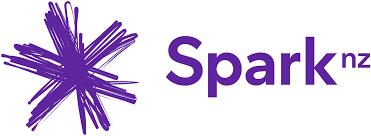A plan doesn’t need to be specially designed for seniors. However, there are a number of specific factors to consider when choosing the best broadband plan for seniors.
It’s initially important to consider the range of activities you’ll be using the internet for, and how this may evolve over time. While we may feel most seniors aren’t big internet users, that’s not necessarily the case for everyone. Your specific needs will help determine how much data and what speed broadband you will require.
Beyond the plan itself, it’s also worthwhile considering the set-up process, along with the extent of tech and customer support provided.
In the following guide, we look at what to keep in mind when weighing up your broadband options, including both key plan features and features seniors should specifically keep in mind, along with a number of plans worthwhile considering.
Best broadband plans for seniors
Broadband considerations
Fibre should be your first choice of broadband technology. It provides superior high-speed internet access and is the standard for internet connections. There are plenty of fibre plans on offer, and 85% of New Zealanders have access to the UFB network.
However, if you don’t have fibre in your area, other options include ADSL/VDSL, wireless and satellite plans (you’ll need to confirm with your local providers).
Key broadband plan considerations include:
- Data – many seniors may not be heavy internet users, and may wish to consider cheaper plans with a data cap. However, keep in mind that additional costs will apply if the cap is exceeded and extra data is required. If you’re planning on using video streaming services, you be better off looking at unlimited plans.
- Data speed – again, seniors who are not heavy internet users will likely not require a super-fast plan. It will be worthwhile weighing up what you will be using the internet for, and consulting with providers about your options. Download/upload speeds of 300/100 Mbps have become a standard entry point for Fibre connections, which are more than enough for most households.
- Contract length – some contracts run from one month to the next, while others require you to sign up for a year. Longer-term contracts may come with additional incentives, such as a free router (see below) and reduced sign-up fees. However if you opt-out before the contract end-date an early termination fee may apply.
- Additional incentives – providers may offer a range of incentives to join, including free subscriptions to video streaming services, or initial sign-up incentives. Meanwhile, bundling with another service, such as a home phone line, mobile phone package, or electricity service, may potentially lead to additional savings.
→Related article: NZ’s Cheapest Broadband Plans
Senior considerations
If you’re not particularly tech-savvy, it will help to have a family member or friend who can guide you through some broadband basics (particularly when it comes to the initial set-up), and who will be able to help out if you experience any subsequent issues.
More broadly, it could also be worthwhile enrolling in a course to improve your digital literacy. For instance, SeniorNet, which runs at locations around the country, offers courses designed to help seniors learn how to use and enjoy different types of technologies.
Some features seniors might want to give specific consideration to when signing up for a broadband plan include:
- Hardware – it will help to have a basic knowledge of the hardware involved. From ensuring your household is UFB-ready, to choosing an appropriate router. Many providers offer a router with their contracts, which will cater for the requirements of the typical internet user.
- Set-up – what sort of set-up support does a retailer provide? Providers typically provide step-by-step guides, while arranging for in-home set-up support usually involves additional costs. Getting your home network right from the get-go is important.
- Wireless coverage – will there be adequate coverage throughout your home? It’s worthwhile keeping in mind the layout of your household and consulting with your provider. Some providers offer deals with enhanced wireless coverage (see below).
- Tech support – what sort of specific tech support does a retailer offer, and what are the costs involved? For instance, is it simply over-the-phone support, or can you also arrange in-home call-outs?
- Customer service – more broadly, what sort of customer service is provided? Will it be easy to talk to someone, if required? Is the first point of contact online? What sort of wait times are involved? (It’s worthwhile reading customer reviews online).
- Account monitoring and management – what range of online account monitoring and management tools are provided, and how easy are they to use?
Best Broadband plans for seniors in NZ
The following is a selection of broadband plans, along with some of the services on offer, from different providers. Not all providers are listed, so to get more details on all the broadband providers we track, click here.

Now
Now offers three fibre plans, each available on a 12-month contract: 125 GB, Unlimited and Ultra Unlimited, providing options for data-light through to data-heavy users.
You have the option of using your own router, or purchasing a router when signing up (for a one-off fee or via monthly payments).
| Plan | Data | Speed (download/upload) | Cost(*) |
| 125 GB | 125 GB | 300/100 Mbps | $75 |
| Unlimited | Unlimited | 300/100 Mbps | $85 |
| Ultra Unlimited | Unlimited | 900/400 Mbps | $99 |
Now additionally provides the following services with its plans:
- Home tech assist – annual in-home or over-the-phone tech assistance memberships, comprising: an In-Home and Remote subscription ($19.95 per month), giving you two in-home visits a year, plus unlimited over-the-phone support; a Remote (over-the-phone) subscription ($9.95 per month), providing unlimited over-the-phone support.
- Pay-as-you-go assistance – comprising: an in-home visit, at a cost of $70 for 30 minutes ($140 for one hour); over-the-phone assistance, at a cost of $35 for 30 minutes (no charge for standard broadband technical support).
- Now Assist – a smartphone app designed to help you quickly understand internet issues, providing prompts to fix common problems, which also allows customers to connect to Now’s tech support team.
- Whole home wi-fi – designed to provide complete wireless coverage, using two or three small routers to create one seamless network, available interest-free over 12 or 24 months, or for a one-off payment.
- Customer support – customers can get in touch via phone or email.

Vodafone
Vodafone offers two fibre plans on a no fixed-term contract: Fibre and Fibre Max, with both plans coming with unlimited data, meaning you won’t have any concerns about exceeding data limits.
You have the option of using your own router, or purchasing a router when signing up (plans with a Vodafone router have a 12-month contract length).
| Plan | Data | Speed (download/upload) | Cost(*) |
| Fibre | Unlimited | 300/100 Mbps | $79 |
| Fibre Max | Unlimited | 895/501 Mbps | $99 |
Vodafone also offers wireless broadband plans, which may be better suited to low user customers:
| Plan | Data | Cost(*) |
| 4G Wireless | 60GB/300GB/Unlimited | $40/$55/$65 |
| Unlimited 5G Wireless | Unlimited | $79 |
Vodafone additionally provides the following services with its plans:
- Pay monthly mobile – you’ll receive a $10 per month discount if you also have a Vodafone pay monthly mobile plan.
- Set-up support – Vodafone has partnered with Noel Leeming Tech Solutions, with broadband customers able to call to book an in-home appointment for set-up assistance (a one-off fee of $149 applies).
- SuperWifi – join Vodafone on an eligible broadband plan and once your plan is activated, you can redeem SuperWifi, designed to provide wall-to-wall wireless broadband. SuperWifi comprises two mesh nodes, included for the standard price of your plan (you will need to stay on your plan for 24 months).
- My Vodafone app – includes a range of account monitoring and management functions, along with help and support.
- Customer support – customers can get in touch via live online chat, in-store or via phone.

Spark
Spark offers three fibre plans on an open-term contract: Everyday Fibre, Essential Fibre and Max Fibre, each of which comes with unlimited data.
You have the option of using your own router, or purchasing a router for a one-off payment when signing up.
| Plan | Data | Speed (download/upload) | Cost(*) |
| Everyday Fibre | Unlimited | 50/10 or 50/20 Mbps | $70 |
| Essential Fibre | Unlimited | 100/20 or 300/20 Mbps | $85 |
| Max Fibre | Unlimited | 862/506 Mbps | $100 |
Spark also has a selection of wireless broadband plans:
| Plan | Data | Cost(*) |
| Basic Wireless | 40GB | $45 |
| Lite Wireless | 120GB | $55 |
| Everyday Wireless | 4G Unlimited | $65 |
| Max Wireless | 5G Unlimited | $80 |
- Netflix – the Essential and Max plans come with a Netflix Standard subscription.
- Tech Wizard support – over-the-phone support available as a 12-month subscription at a cost of $14 per month, or for a one-off fee of $120.
- Spark app – provides a range of account monitoring and management tools.
- Customer support – customers can get in touch via live online chat, in-store or by phone (with the option to book a callback), or via Spark’s messaging service.
*Further information on pricing can be found at individual retailer websites. This should be used as a starter guide and not considered an actual quote.
Compare broadband providers with Canstar
For a clearer picture of broadband providers in NZ, Canstar Blue rates all the providers in the market annually. We survey thousands of broadband customers and ask them to score their providers across categories including Value for Money, Network Performance and Customer Service.
Canstar Blue’s 2021 review of NZ internet providers compares NOW, 2degrees, Bigpipe, Contact, MyRepublic, Nova Energy, Orcon, Slingshot, Spark, Stuff Fibre, Trustpower and Vodafone, and awards the best our 5 Star rating:
^ By clicking on a brand or 'details' button, you will leave Canstar Blue and be taken to either a product provider website or a Canstar Blue NZ brand page. You agree that Canstar Blue NZ’s terms and conditions apply (without limitation) to your use of this service,to any referral to a product provider from our website, and any transaction that follows. Canstar Blue may earn a fee for referrals from its website tables, and from sponsorship (advertising) of certain products. Payment of sponsorship fees does not influence the star rating that Canstar Blue awards to a sponsored product. Fees payable by product providers for referrals and sponsorship may vary between providers, website position, and revenue model. Sponsorship fees may be higher than referral fees. Sponsored products are clearly disclosed as such on website pages. They may appear in a number of areas of the website such as in comparison tables, on hub pages and in articles. Sponsored products may be displayed in a fixed position in a table, regardless of the product’s rating, price or other attributes. The table position of a sponsored product does not indicate any ranking, rating or endorsement by Canstar Blue. See How we are funded for further details.
Canstar Blue NZ research finalised in May 2024, published in June 2024.
See Our Ratings Methodology
The table above is an abridged version of our full research, so to find out more about NZ’s best broadband providers, just click on the big button below:
Compare broadband providers for free with Canstar!
About the author of this page
![]() This report was written by Canstar author Martin Kovacs. Martin is a freelance writer with experience covering the business, consumer technology and utilities sectors. Martin has written about a wide range of topics across both print and digital publications, including the manner in which industry continues to adapt and evolve amid the rollout of new technologies
This report was written by Canstar author Martin Kovacs. Martin is a freelance writer with experience covering the business, consumer technology and utilities sectors. Martin has written about a wide range of topics across both print and digital publications, including the manner in which industry continues to adapt and evolve amid the rollout of new technologies
Enjoy reading this article?
You can like us on Facebook and get social, or sign up to receive more news like this straight to your inbox.
By subscribing you agree to the Canstar Privacy Policy


Share this article